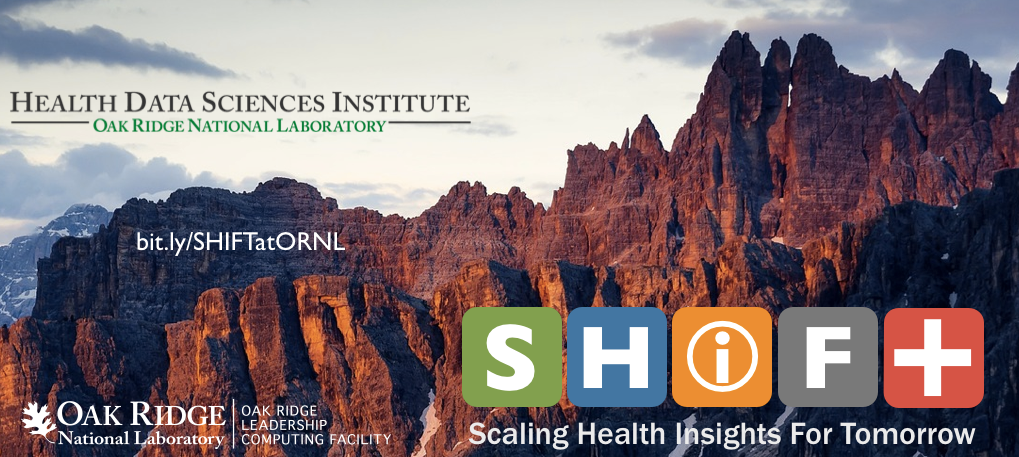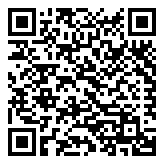
SHIFT@ORNL: Scaling Health Insights For Tomorrow
The Grand Challenge
As part of the 2015 BSEC Conference, we will conduct a “Grand Challenge” on the use of publicly available, disparate data to gain insights into issues of minority health and health disparities. The Scaling Health Innovations for Tomorrow (SHIFT@ORNL) Challenge will provide a unique opportunity for participants to leverage publicly available datasets and advanced big data analytics in new and creative ways to discover, understand better, and prevent health disparities.
Participation
The SHIFT@ORNL Challenge requires participants to form interdisciplinary teams composed of both domain scientists and data scientists in order to overcome any obstacle that arises during the challenge. Teams are also required to integrate at least two datasets in their research, preferably from different data sources, that are either currently publicly available or would be publicly available in the future. Furthermore, while scientific innovation and novelty is expected, successful SHIFT@ORNL teams must also demonstrate how “big data” technical innovations (e.g., high-performance computing (HPC), advanced analytics, visualizations, etc.) enabled scientific discovery.
Prize
The first place winning team of the SHIFT@ORNL Challenge will:
1. join a special panel discussion during the BSEC Conference focusing on the topic,
2. receive a waiver of the conference registration fee for BSEC 2015, and
3. receive a $500 cash prize.
Important dates
Notice of Intent to Participate 11:59PM (EDT) June 1, 2015
Submission Deadline 11:59PM (EDT) July 1, 2015
Winner Notification July 20, 2015
BSEC 2015 Conference August 25-27, 2015
Questions: Please direct all questions to the BSEC Grand Challenge Committee at [email protected]
[tab: Submissions] All submissions must be in the form of a 4-page extended abstract (i.e., short paper). Submissions must include a description of and links to (if available) data sources, data analytics methods, research findings, and overall significance and impact of their discoveries. In addition, participants should provide a 150-word summary to be included in the BSEC conference proceedings. Note that only the summary will be included in the proceedings, and thus should not conflict with any concurrent or future submissions of this work to other venues. Submissions will be judged based on their novelty, significance, and technical rigor. All submissions must be made to the BSEC 2015 submission site prior to the submission deadline. [tab: Expert and Industry support] A limited number of industry and expert partnerships are available to teams who wish to develop solutions based on high performance computing and emerging technologies. Pairing will occur on a first-come first-served basis.Please send an email to [email protected] to request a pairing or for more information.
We are currently finalizing this list. Please check back soon for more information!
If you have software or hardware and would like to participate as a devtech mentor to a team, please send an email and let us know about your technology!
[tab: Sample Datasets] Some sample datasets to get participants started on their submissions are available on the BSEC Grand Challenge website. These datasets are merely intended to provide a starting point, and are not required for the submission. Participants are encouraged to provide their own datasets for the community.This list will be continually updated. Please check back often.
HealthData.gov – https://www.healthdata.gov/
Data.gov – https://www.data.gov/
Climate.data.gov – https://climate.data.gov/
OpenFDA – https://open.fda.gov/
Semantic Medline – https://skr3.nlm.nih.gov/SemMed/index.html
CMS Synthetic Public Use File – https://www.cms.gov/Research-Statistics-Data-and-Systems/Downloadable-Public-Use-Files/SynPUFs/DE_Syn_PUF.html
Doctor Graph – https://www.docgraph.org/
Open Maps – https://wiki.openstreetmap.org/wiki/Main_Page
1000 genome dataset – https://aws.amazon.com/1000genomes/
TCGA – https://cancergenome.nih.gov/
TCIA – https://www.cancerimagingarchive.net/
U.S Census – https://www.census.gov/acs/www/data_documentation/data_via_ftp/
How is this different from other challenges?
Healthcare is a field too large for any single discipline. We really want to encourage a cross-disciplinary approach to problem solving, something that is part of the culture at national labs like ORNL. We want teams made up of all sorts of people: clinicians, statisticians, economists, physicists, chemists, biologists, geneticists, developers, physicians… you get the idea.
Can you give more specifics about the theme?
The theme is broad because we realize that with a broad teams, comes creative problem solving. The goal is to think outside of the box, think big, think different, think bold.
Can I use [insert dataset]?
This challenge is about getting data no one would think of putting together because it’s either difficult or too big. That’s why you need friends from across the campus, outside of the department, perhaps even in another country. So device, sensor, city, population, government … all these data, yes. And the more openly available, the better.
Why is scalability and algorithm important?
We are drowning in data and limited one-off solutions are all too common. This challenge aims to break this cycle. There are two questions we will ask of each submission under this category:
1) If the dataset size increases, will this solution scale with it?
2) How difficult would it be to extend this to include other datasets?
Ask more below!



